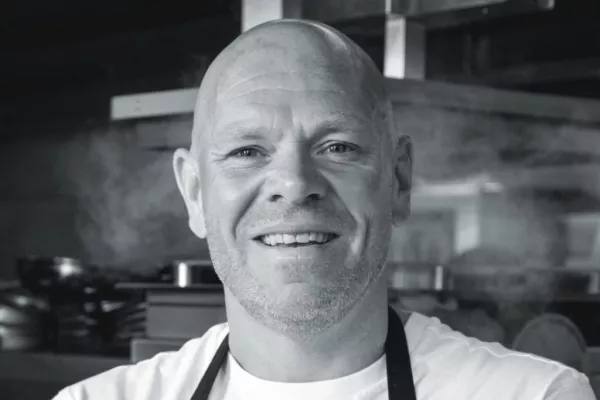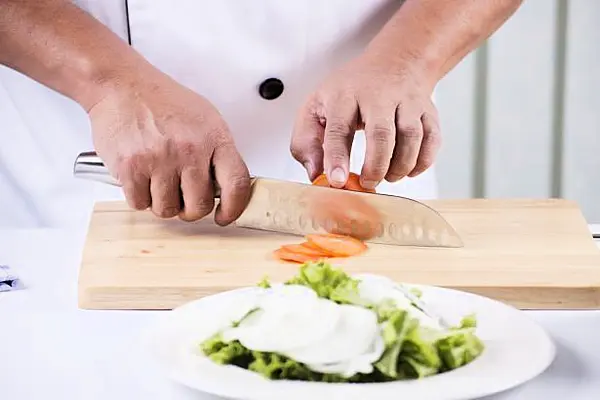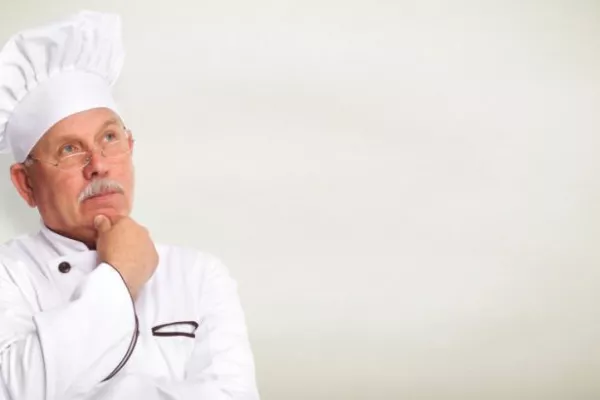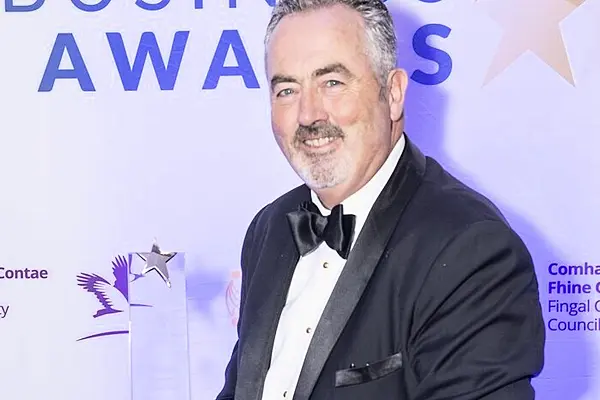In late 2019, Michelin-starred chef and broadcaster TOM KERRIDGE started filming a BBC series, Saving Britain’s Pubs, in which he went into four ailing pub businesses and looked at ways to turn them around. Halfway through filming, COVID-19 hit, the UK and Ireland went into lockdown, and suddenly their fight became his fight – the fight of every hospitality business – to simply stay alive.
The first thing that strikes me, watching Saving Britain’s Pubs on BBC, is that the experience was clearly an emotional one for presenter Tom Kerridge. Kerridge is the Michelin-starred owner of the Hand and Flowers (two Michelin stars), the Coach (one Michelin star) and the Butcher’s Tap, all in Buckinghamshire; the Bull & Bear, in Manchester; and Kerridge’s Bar & Grill, at the Corinthia hotel, in London.
As a presenter, Kerridge has anchored the Great British Menu, MasterChef, Saturday Kitchen, Tom Kerridge’s Lose Weight for Good, Top of the Shop with Tom Kerridge, Bake Off: Crème de la Crème and Food and Drink. He is known for being straight-talking, empathetic and practical.
Would I be right in saying that you found the experience of filming this series quite emotional?
“It is emotional,” Kerridge says, “because, you know, I’m trying to help people with just a little bit of experience, and maybe a slightly outside viewpoint, to be able to say that there are different ways of doing this, or what about trying to look at it that way – you know, recognising their pain, or why they are struggling with some things – and you can’t help but get emotional when you know the human aspect, but then, all of a sudden, our pub – every pub – gets shut down, and every business gets shut in. The cameras are off, we’re halfway through filming, and we also become part of the documentary. It suddenly becomes hugely emotional.”
Long Time Coming
We all know that pubs have been having difficulties, anyway, for at least the last 15 years. Lots of them have found business very challenging – everybody who hasn’t gone under has had to reinvent and pivot – and then, suddenly, along comes the supreme challenge of coronavirus. In the beginning, there was a lot of talk about the virus treating everybody equally, but that isn’t really true, is it? The hospitality industry has been decimated in a way that other industries haven’t quite.
“The virus affects people in many different ways,” Kerridge says. “From a health point of view – if there are underlying health conditions – people from different socio-economic backgrounds are affected differently because of the nature of where they work and how they socialise. So, yes, the virus does affect people differently, but within the hospitality sector, from an economic point of view, it is the one industry that has been at the front of the decision-making, in terms of government ideas of where people mix.
“It seems very easy to say that hospitality is the issue. Only 3% of infections have come through hospitality. It is movement of people. It’s in places where there aren’t stringent controls – moving through retail and moving on to public transport, moving a million students backwards and forwards in the summertime. It’s all of these sorts of cases and these sort of situations that are causes. It’s just that hospitality is sat there, and it’s very easy to point a finger at an industry that is struggling already, particularly the pub sector.
“Changing market spaces and having this thrown at them without being given full support is a very difficult thing for us to be taking. It’s very, very hard, you know. It feels legitimate that through a health risk and a health issue that the government shuts an industry down. This has to be compensated fully.
“If you shut down banking and say they are not allowed to loan money any more, if you shut down manufacturing, if you shut down construction, things just don’t happen. The industry needs to be fully compensated.”
Talking of the 80% furlough, Kerridge says, “Yes, that is fantastic, for a start – yes, that is generous – but it is still 80%. They still have rent to pay, they still have bills to pay, and that hasn’t been reduced to 80%, and many hospitality businesses are still charged full rent, even though they aren’t able to be open. It’s an incredibly difficult place for hospitality to find itself in. It does need full compensation. Places will close. They were struggling before. Now this creates an even worse position for all of us to be in.”
Kerridge also highlights the confusion in messaging, saying, “We’re all in different types of lockdown all over the UK and Ireland. Everyone’s got different messages. No one really knows or understands what is right and what is wrong. There are so many mixed messages coming along. The levels of trust completely disappear, and from that point of view, although coronavirus is the biggest issue right now for the survival of pubs, there are many more things that pubs face, many more issues that pubs are up against. There were pubs that were already on a life-support machine and trying to work their way through, and this could be the thing that finally kills them off – so maybe this is the point where many places just close and don’t come back.”
There have been, Kerridge points out, “something like five or six changes in the government’s strategy in the last five or six weeks. How are hospitality businesses supposed to understand what on earth we are supposed to be doing?”
He talks about finding out vital information from Twitter, saying, “How disrespectful is that, for businesses to be finding out how we run our businesses from Twitter? That isn’t how to run a country. We do not run businesses like that. We have straight conversations – you have a conversation with people and you ask questions, you get answers, so that you can build with clarity – and the fact that the government, for this whole last year, has been constantly in a spin and releasing different things to the press, it leaves people with huge amounts of distrust. People are fed up. They don’t trust the government. They don’t believe it. People care massively for the health issue. People care massively for the doctors and nurses who are working very hard. People care massively for the people who are affected by this health-care crisis, but they have naturally lost a lot of respect towards what the government is saying.”
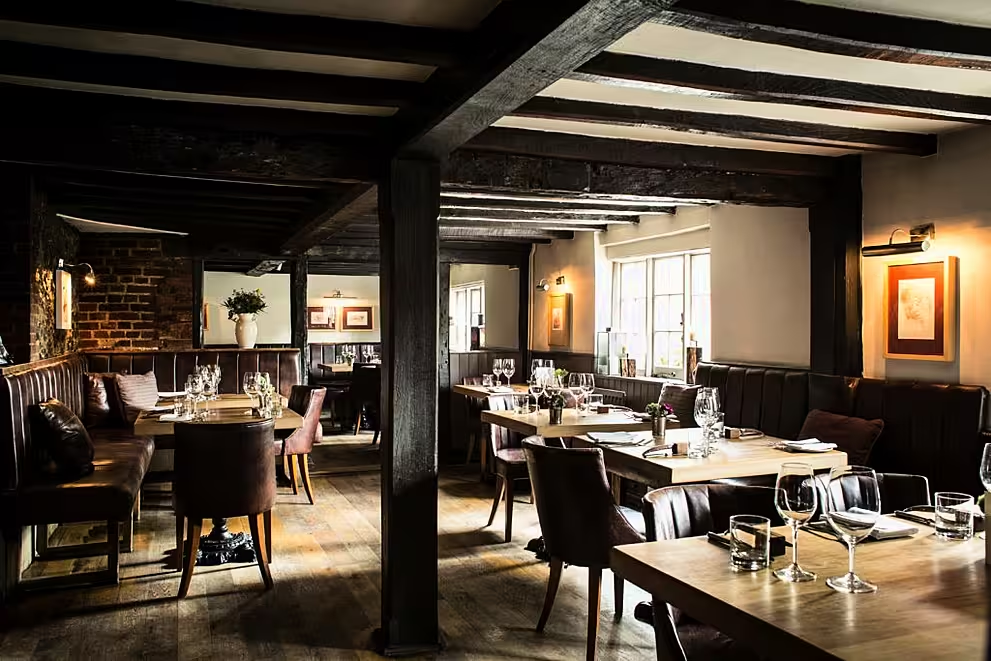
The Hand and Flowers
Divisive Politics
Kerridge also picks out the kind of ‘antipub’ rhetoric that has been deployed by government, saying, “The more that you treat people – and I don’t mean pubs, I mean the actual pub-going public – the more you behave as if ‘they go to the pubs just to get drunk’, that is divisive politics, and divisive communication creates an environment where people do not want to behave in the way they are asked to. You hear people joking about whether one or two Scotch eggs is a substantial meal, but this is not a joke – this is people’s lives, this is people’s businesses, this is people’s life’s work, their savings, their houses, their homes, it’s where they live – and, more than that, pubs are the fabric of society. They mean so much more, so I find it incredibly frustrating. I find it astonishing. I find it rude, and really insulting.
“We all know that, on some Saturdays, some people will go out and have a really good time, but the other six days of the week, people meet in pubs, they use these as community centres, they meet friends, they have a drink, they socialise. Not all of us are fortunate enough to live in a big house with a big garden and a big living room. So many people live on their own, in tiny, small little houses, or a flat share, or house share with lots of people, where that space is incredibly cramped. They need to be able to get out. They need to be in a different environment, a COVIDsafe environment, and the hospitality industry – pubs and restaurants and bars and hotels – have spent millions and millions of pounds making sure that they are COVID safe and secure, making sure we operate in a safe environment, where people can mix in COVID-secure arenas.
“I don’t think they listened at all to industry leaders. They are making it up as they go along, without a single care for the hospitality industry. It feels, to me, as if it is the sacrificial lamb. It’s disposable because you can’t close down universities and schools – you can’t shut down education, as that is people’s future. OK, we understand that, but retail is reopening. I don’t know how you can do that without the pubs being able to operate. High streets are able to operate in Tier Two, but coffee shops and pubs not being able to operate? Part of the retail experience is going out shopping and being able to have a coffee, have a drink, meet your friends, and go for dinner or lunch. In Tier Two, you can go retail shopping, but you can’t meet your friends for a drink. It’s absolutely ridiculous, and it doesn’t help retail, either. We have seen many retailers hugely struggling.”
Hospitality, Kerridge points out, “is the third-biggest employer in the UK, with over 3.5 million employees, and then, on top of that, there’s the sector that goes with it, which is supply chain – the farmers, the fishermen, the manufacturers of furniture and kitchen surfaces, and steelworkers, and everything that goes with making hospitality operate. It’s a beating heart – it’s the engine of the social and economic fabric of this country, and it is just being decimated.”
There is, Kerridge says, another issue here, with the insurance companies.
“Many, many hospitality operators have a pandemic insurance that you have to have legally, and, yet, not a single penny has been paid out. There are legal cases going forward. At the beginning of Lockdown One, the UK government said that they would be forcing this issue, and they have not paid out. If the insurance companies would pay out, there wouldn’t be this problem, there wouldn’t be this issue.”

The Hand and Flowers
Less Than Zero
When he talks of businesses starting up again, post-pandemic, Kerridge points out, “We’re not even starting at point zero here – we’re all starting now with negative equity. It’s not like it’s a cash-rich and fluid industry in the first place. Most places operate at very small margins. The only way this is manageable so far is because of the furlough scheme and loans that we have taken to exist, so we are now operating straight from the red. We are going to be reopening in minuses, deficits. It just puts you in a hugely difficult position. Many people haven’t got the energy, haven’t got the resources, haven’t got the time to start over. It is a 100-hour-week job. It is a 100% – you never go away from it. You don’t have weekends off. It’s not like you disappear at 5pm and turn the TV on.”
If he were to say a few things to pub owners looking towards next year, is there anything that he can think of that might be of benefit?
“There are some positives to come out of this. The one thing that I would have taken as a huge positive from this year is the recognition that we are social animals. We do love mixing with each other. We do really want to spend time socially connecting, and that means going to football matches, going to rugby games, spending time in coffee shops, and, most importantly, spending time with friends and family in bars and restaurants, and the energy of that – that’s the one thing that we do massively miss. I think that one thing that people will have gotten is that you can still buy a beer in lockdown. You can go to the supermarket, you can get it online, whatever. The actual product is something we all associate with pubs, but it’s not about the product – it’s the communication, it’s the space, it’s the understanding of what people get from going to a pub – and I think this has put a real valuation in everybody’s minds as to what a pub actually is. That pint, that glass of wine, is more than just a liquid in that glass.
“I think that’s a huge positive that we can take out of it – that people do want that, and they will recognise it a lot more.”
Another positive that Kerridge identifies is a new understanding of the many diverse incarnations of pubs, saying, “One of the things that was shown during the lockdown is pubs being centres of the community – being able to be community centres, or being able to be part of running yoga classes, and so on. Pubs do have to look at being fully staffed, they do have to look at being multifaceted, and there are many things that they can do. The days are long gone now of opening the door and hoping that everything is going to be alright. Those days have passed, and we do need much more coming through. The most resilient and the most entrepreneurial pubs will survive because communities are desperate for them to be there. We’re just going to start thinking outside the box a little bit more, to ensure their survival.”

Looking Forward
As he looks forward to next year, what does he expect, and what does he hope will happen in the first six months or so?
“Everyone is hopeful for the vaccine. Everyone is hopeful for the vulnerable and the needy, and the frontline NHS, and everybody is desperate for that vaccine. The people that are most at risk will get the vaccine first, which means that they can get on with their lives, and that kind of takes the pressure from everybody else to not worry so much. Then, moving forward, I hope people’s lives and livelihoods get back to normal as quickly as they can. I definitely hope the government actually recognises how important the hospitality industry is and sees the value of it, and recognises it as one of the key spark plugs to reigniting the industry, moving forward.”
Then, he adds, “we our work our way through the next disaster, which is Brexit.”
I do not envy him that, I say. As bad as things are here in Ireland, he has an added layer. Obviously, Brexit affects Ireland enormously – everything that happens in the UK affects Ireland enormously – but, still, he is at the front line of Brexit.
“The main thing is, we don’t know what’s going on. It does feel like there is, perhaps, some kind of end to the coronavirus. It does feel like there will be some end to it – it doesn’t feel like it’s going to go on forever now, although it still feels a long way away – but then, once that’s done and moved on, we will get over that, but the Brexit situation is the one that’s incredibly uncomfortable, from a hospitality point of view. I don’t see any positives in being exiled from Europe, at all. There isn’t a single thing that I see as a positive in that for our industry. In terms of workforce, in terms of travel and tourism and people visiting, I see no positive in terms of costs, in terms of trade deals with different European Union countries.
“It’s not just about what we do in the UK, which is great, and UK produce is something we should be incredibly proud of, but we are not self-sufficient as a country – we can’t just live on our own as a really small island. I find it very hard to get my head around how we think of getting Arborio risotto rice any cheaper. How are we going to get fantastic salami? How are we going to get great French cheeses? I see very little in terms of uplift and positivity for the hospitality industry.”
Keeping Going
So, finally, what keeps him going? What gets him up in the morning?
“I don’t think we have any other choice,” Kerridge says. “We opened this business 15 years ago. We now have over 250 employees. The only option we’ve got is to keep going and trying to keep being good at what we did, keep offering value for money, being honest and true to what we do, and you hope that people still support it and people still want it. That is the thing that keeps us driving forward. You just want it to be successful, and we have no other choice. There is nothing else we can do. This is more than just me. Huge amounts of people have given so much time and energy to it,” but, he adds, “I do it because I love it. If you’re in the world of food – the food industry – it is amazing, and the 15 years that I have been in the business, we learned from it, we came through to the other side many times, and I have no doubt that we will be able.
“We’re strong enough,” he says, “with the people we work with – our colleagues, our friends – to get out on the other side of this. It’s just going to be very difficult, but I’ve been a chef for 30 years. I don’t know what else to do. I can’t say I’m going to do some Premier League football!”

The bar at The Coach
This article was originally published in the Winter 202o issue of Hospitality Ireland Magazine, in December of 2020.
